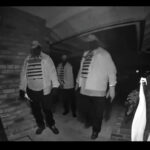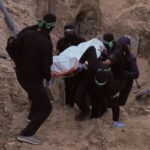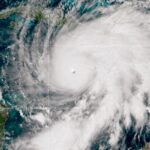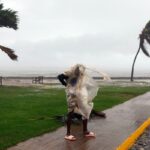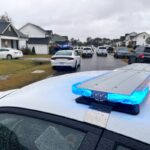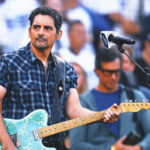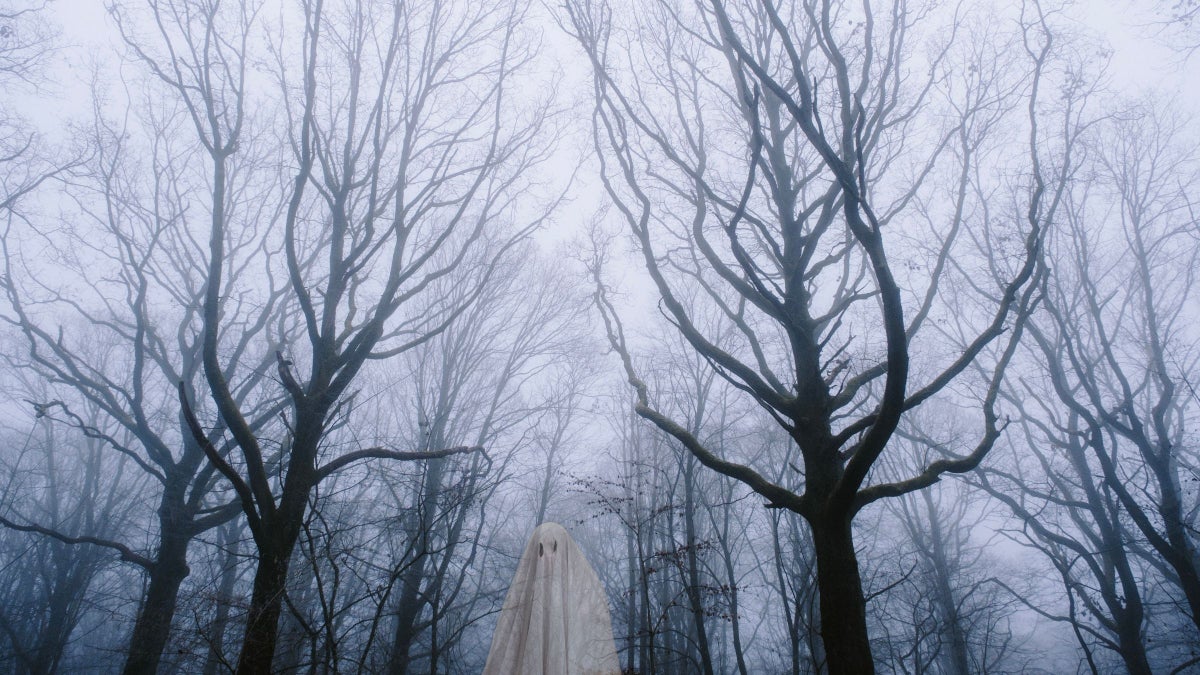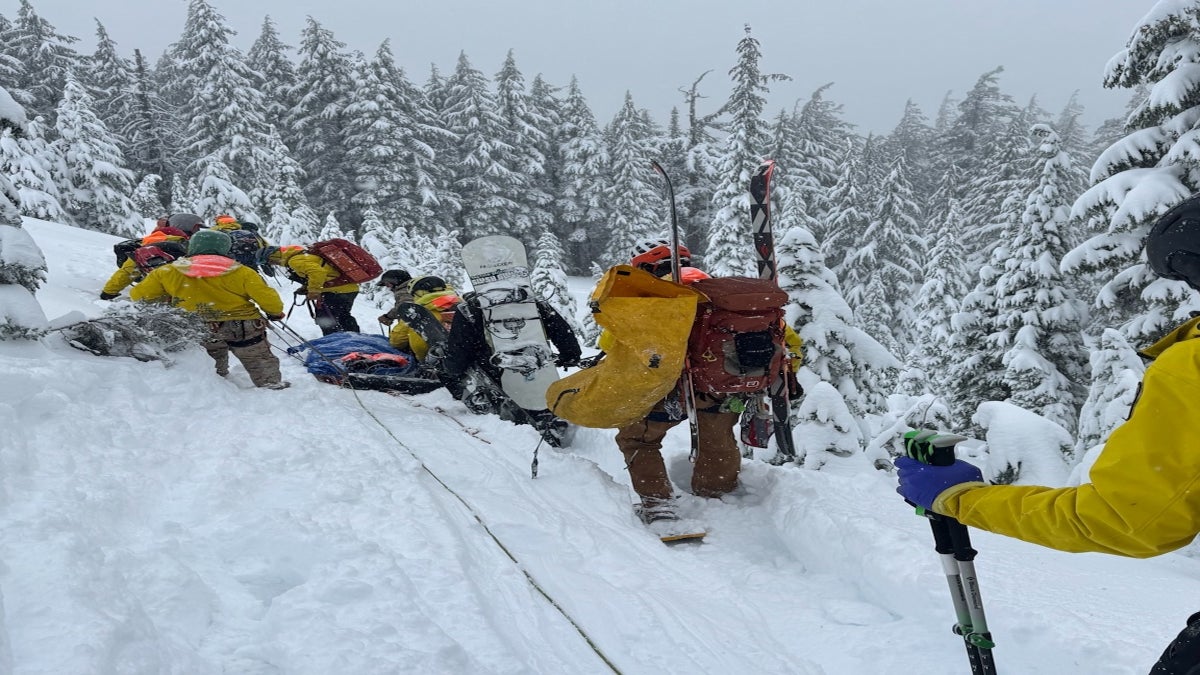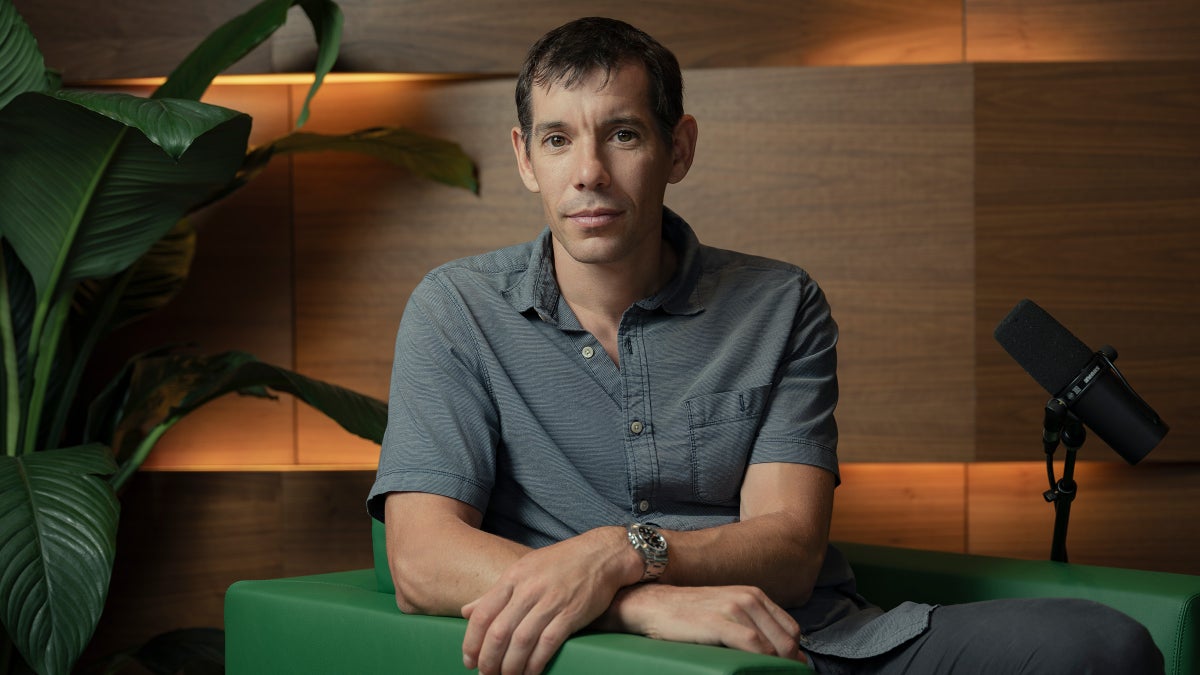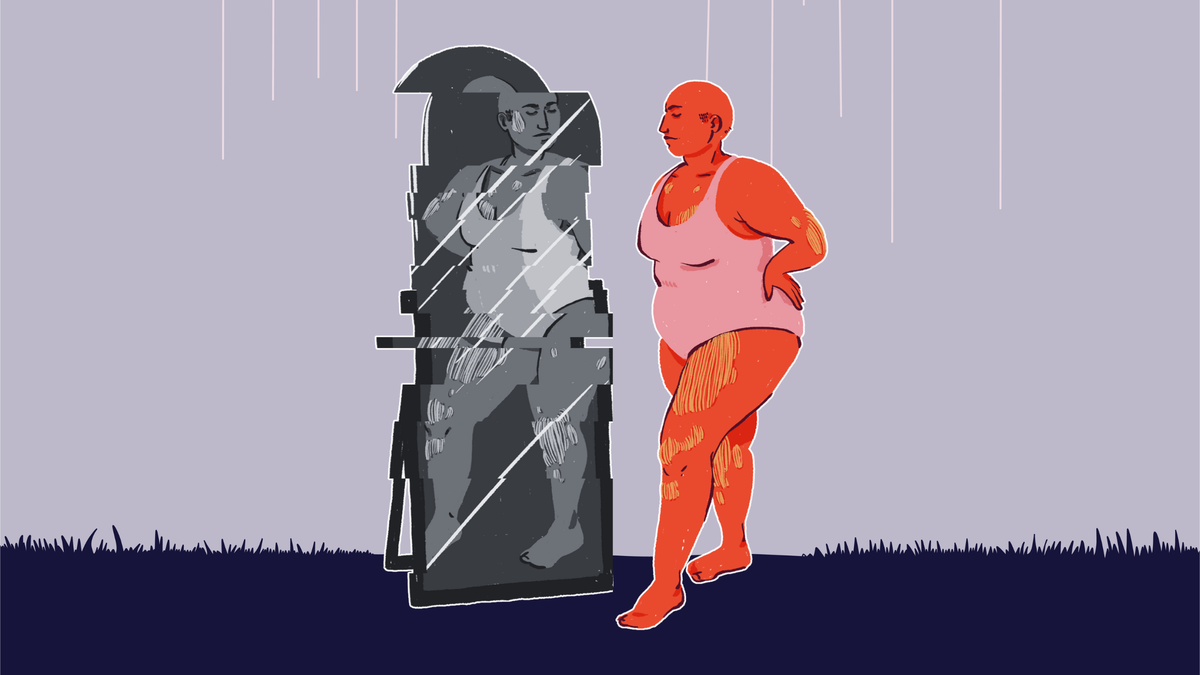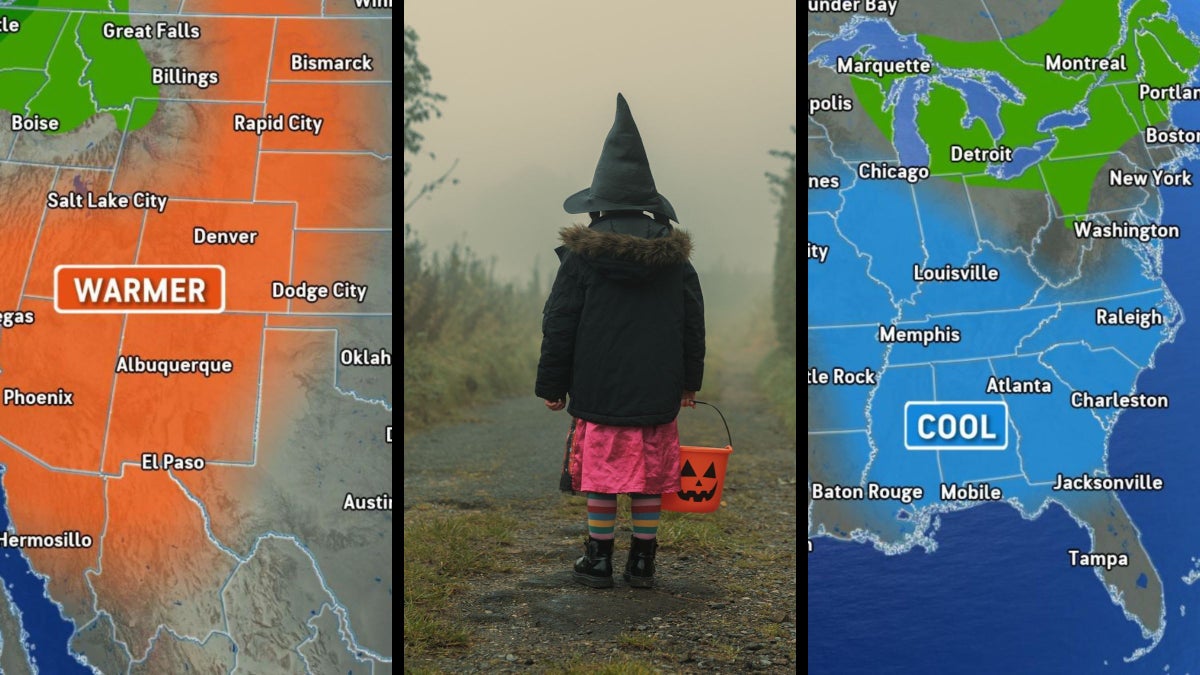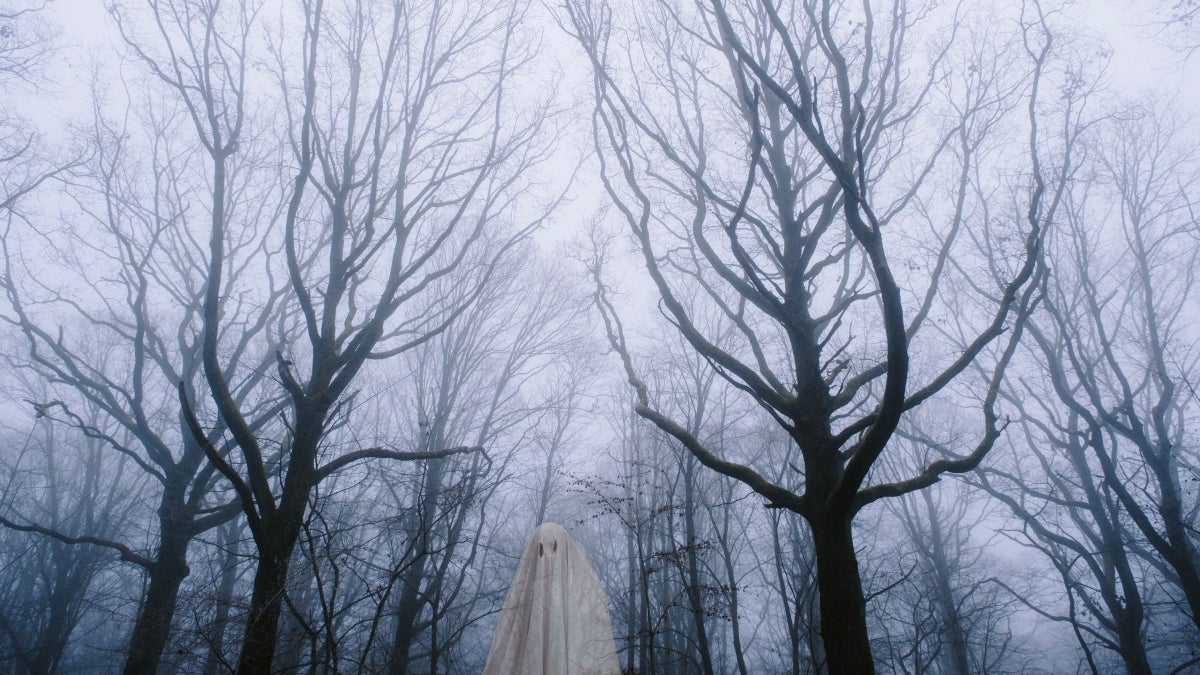
People ask me if I see creepy things in the woods. Mostly I don’t, but sometimes I’m out with my dogs at night and they growl at what seems like nothing. Their hackles rise, and my hackles (that is, arm hairs) start prickling, and I wonder what they’re seeing that I’m not. Do I believe in ghosts? I think I don’t. But the idea scares me, which is to say that I haven’t ruled them out, either. And twined with that fear, I’ll admit, is a desperate hope: if ghosts are real, then death isn’t the end.
This October, in an effort to get to the bottom of this fear-slash-hope, I reached out to a professional ghost hunter named David Olsen, the founder and leader of a ten-person crew called Chicago Paranormal Investigators. David said it was tricky to gauge spectral presence outdoors—his equipment might pick up on animals or stray hikers instead—but I could join him on a nighttime investigation at an abandoned church and rectory that was about to be torn down. His team had investigated there previously, and the site was, he said grimly, “active.”
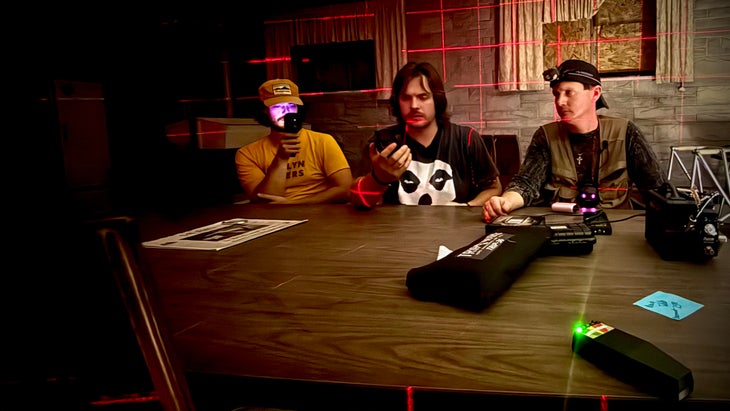
Sure enough, when I arrived that Saturday afternoon at the church, a vast beige building with boarded doors and torn pages of the Chicago Catholic scattered with trash on the ground, one of the investigators had already been hit in the calf with a bolt.
He pulled the bolt from his pocket to show me. “I was standing still,” he said, “and it came out of nowhere. It was a direct hit.”
“Wait,” I said. “Ghosts can physically hurt us?”
There was a long pause.
“Typically no,” he said.
This was a smallish investigation: only three ghost hunters, including David, and two camera guys, who were corporate videographers by day. While David organized equipment—he’d acquired about $100,000 worth over his 20 years of ghost hunting—the other hunters, AJ and Ryan, showed me around. AJ was the youngest at 30, long-haired, with a Misfits tee and tattoo of stigmata on his arm. He’d grown up religious, he said, and got into ghost-hunting when he dated David’s niece. (The romantic relationship ended; the ghost-hunting one stuck.) Ryan was a fireman with a tendency to swear, then apologize—because I was a lady or a guest, I couldn’t tell. I said I didn’t mind. David cleared his throat. “Let’s be polite,” he said. “There could be kid ghosts here.”
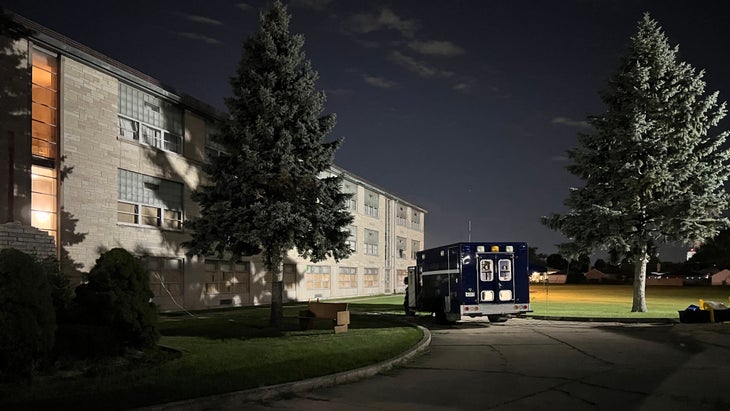
They led me through the nave, with its cracked stoup and crooked pews, then upstairs to a floor of classrooms, a long hall with a dozen open doors. One of the doors, they said, had slammed closed on its own during their last visit; they’d spent an hour searching for drafts, stepping on various parts of the floor to see if shifting weight could make the door move like that. (It couldn’t.)
Ruling out the mundane, it turns out, is the most time-consuming part of hunting the supernatural. “Say aloud if you’re having trouble breathing,” AJ advised me. “It could be ghosts, but it could also be asbestos.” He and Ryan had covered each window with black paper, blocking reflections and light. And anytime someone sneezed, or moved, or scratched an itch, we were to “tag” the sound by naming it aloud. “Ryan! Ryan! Ryan!” Ryan said after sneezing. “Blair taking notes,” I practiced to myself, noting suddenly the volume, the suggestive scratch, of my pen. “Blair’s stomach making a noise like the moans of the undead.”
I tried hard to notice sensations that I might have otherwise ignored. That scratch in my throat, as we shuffled through the rectory hallway, with its moldy books on the floor and torn poster of Diego Rivera—was I coming down with something, or experiencing a sympathetic connection with an entity who couldn’t speak? The rectory air was humid; sun poured through windows on the southern side, so that certain rooms sweltered and others felt as cold as a cave. One room, an office at the far end, gave me the creeps. As soon as I stepped inside, I wanted to leave. Ryan and AJ shared a glance. In their last investigation, they said, several female ghost-hunters had hated this room, but none of the men got bad vibes. It must be part of the rectory where women weren’t allowed; that energy lingered, through intelligent spirits or just echoes from before.
Ghosts might cling on to us. But if need be, he had tools to get them off.
By now the sun was setting, the outlines of covered windows fading to black. After discussing what to eat for dinner (would DoorDash deliver to a condemned rectory with a blocked-off parking lot? Probably not; Ryan left to get pizza), David gave me a tour of his gear. It is not possible, I’m afraid, to express to you the sheer quantity of this equipment, nor, despite my efforts, do I understand what it all does. There were thermal cameras and night vision cameras and voice phenomena recorders, laser grids that projected onto every wall, string lights that changed color to track movement beside them, trip lights, various black boxes with proprietary names, thermo-activated music boxes, electromagnetic sensors, plug-in electromagnetic “pumps” so that ghosts wouldn’t need to drain our phone batteries (or us) if they needed energy to communicate, motion-detector stuffed bears that would light up and dance if a curious child spirit came close, and much more. By the time it was all set up, the whole cold, disintegrating place was threaded with lights and lines, flickering everywhere, black and red, the sheer quantity somehow terrifying and embracing at once.
It was time to begin. I’d had goosebumps for an hour straight.
“If anyone feels not right,” said David, “like you’re not yourself, step out.” Ghosts might cling on to us. But if need be, he had tools to get them off.
We stood in the entryway of the rectory, shifting weight, holding our breath in the reddish dark. “Is anyone here?” said David, loudly, as if calling to someone outside. “Is there anything you want to tell us?”
Nothing answered. A shadow passed toward the stairs. A shred of light, maybe, from the edge of the windows; headlights gliding outside. Or else a spirit heading downstairs.
“The last time I was here,” said Ryan, “I felt like I was gonna hurl.”
I felt nauseous myself.
We decided to try the next room. AJ gestured, politely, for me to walk in first. “No way,” I said.
“First is fine,” he told me. “What you don’t want to be is last.”
I stayed in the middle of the group, making sure to be within an arm’s reach of at least one person at all times. The next room held only a stained mattress, half-covered with sheets on the floor.
“We just want to talk to you,” David told the ghosts. “Please. We don’t mean harm.”
Nothing was answering us, not now, although later David would scour the recordings, listening for voices we might not have heard at the time. But room after room felt empty. We all agreed. Another shadow passed the doorway, heading toward the basement stairs. AJ suggested, this time, that we follow it down.
The basement was freezing. It felt like stepping into a cold pool. David set a temperature-sensitive music box on the stairwell, lasers by the door, and we sat on moist chairs around a table in the center of the space. No sooner had we sat down than the thin melody of the music box sounded from the stairs.
We turned toward it as one, hypnotized, chilled.
“Make it stop,” called David, and I thought, at first, that he was speaking to us. But he was facing the darkness. “Make it stop, so we don’t think it’s a false alarm.”
The notes kept on.
“You’re not listening,” he said to the ghost. “If you keep it going like that, I’m going to think it’s a false alarm, not you.”
The box went silent.
“Did I scare you?” he said.
Silence. A few notes. Then silence again.
“I don’t know what to believe,” said David. “If it’s you, I don’t want to discourage you from messing with the equipment. Maybe you like this piece more than the other stuff. But I just can’t tell—”
The music interrupted him, lilting and slow. A few seconds. Then it stopped.
“Were you a musician?” called AJ, gently.
“I think it’s a false alarm,” said David. “Or the way it’s messing, it’s something like a child would do, in my opinion.”
“Were you upstairs before?” said Ryan. “Did you lead us here?”
David moved the music box, and Ryan put a laser grid projector in the spot where it had been. “This one just makes lights,” he said. “It’s not going to hurt you at all. See? I can touch it. It makes pretty colors. You get more rainbow colors the more you touch it. Or if you really like this music box, I’m putting it by the other stairs.”
By the other stairs, the music box sat still. I stared at the laser’s red lines, willing them to change.
“You can play with it…” said David. “It won’t hurt you. You can play.”
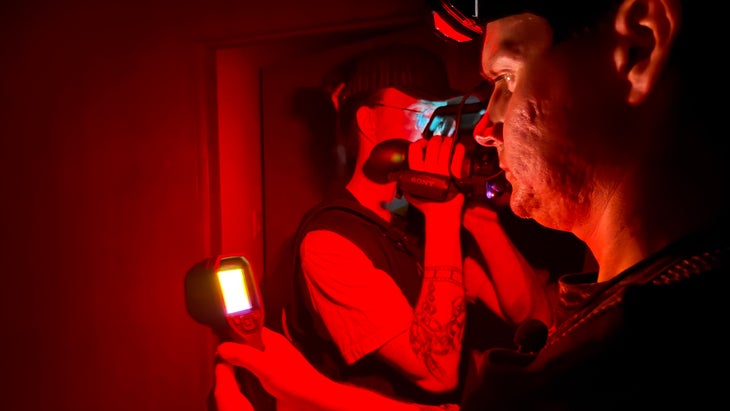
And with that line, with the boyishness of his voice—I have this, will you play?—I stopped, in an instant, being scared. It was the familiar sweetness of his wish. David had cool gear! And he really, really wanted the ghost to like it.
The laser lines were still. All of the music was gone.
Even if the ghosts didn’t want to play with the equipment, we could. AJ pulled out a box that generated words on a screen, and we all guessed what they might mean, though to me the words seemed more like story prompts—“felt desert”—than messages from beyond the grave. Then we turned on a device that scrolled through radio signals, and strained for meaning in the gargling, staccato din. The guys heard something that sounded like “evil.” To me, it sounded like “key lime pie.”
“What I think is interesting about ghost hunters is that they’re looking. Regardless of what they find.”
When I finally left, crossing the parking lot to my car, I felt less nervous than I ever have in a dark parking lot in my life. But I sure as hell stopped at a 7-11 en route back, as David advised, to shake off any spirits that might follow me home, and also to buy Skittles.
As luck would have it, I found myself at dinner that week with a Catholic priest, and told him about the church. “Would there be a room in the rectory where ghosts wouldn’t want women to come in?” I asked him.
“Well,” he said, “all of it.”
Another dinner guest leaned forward over his salmon. “What I think is interesting about ghost hunters,” he said, “is that they’re looking. Regardless of what they find.” And suddenly I understood what had felt familiar—that excitement, that spine-tingling hope—as we’d held our breath for the ghost to respond, and why every friend I’d told about the experiment had demanded to know the outcome, regardless of their beliefs. The search wasn’t really about ghosts—or at least, not just about ghosts—any more than a hike is about getting somewhere. We’re all just finding new ways to look for more.
The post What It’s Like to Spend a Night with Ghost Hunters appeared first on Outside Online.


